10+ Most Shocking Plot Twists That Happen In The Middle Of The Movie And Change Everything
Ever been engrossed in a movie, thinking you have everything figured out, only to be blindsided by a sudden plot twist? There's no denying the exhilaration and surprise that comes with a well-executed twist in the middle of a film. It's the moment where everything you thought you knew about the characters and plot is turned upside down, leaving you on the edge of your seat and eager to see what happens next.
Perhaps the most impressive part of a mid-movie plot twist is its ability to change the entire trajectory of a story. Everything that comes after it carries more weight and significance because of the twist, and it leaves a lasting impression on viewers long after the credits role.
So, get ready to relive some of the most jaw-dropping plot twists that have happened right in the middle of a movie, leaving audiences stunned and amazed. From unexpected character motives to shocking revelations, these twists will make you realize that in the movies, just like in life, anything can happen.
The course of the investigation changes immediately, along with the tone of the story. Mark determines the body actually belonged to one of the models Laura used for her ads. He initially arrests her for the crime but comes to believe she's innocent and Waldo is actually the killer. The remainder of Laura finds the detective attempting to collect enough evidence to charge him, as well as to establish the motive. What he finds is that Waldo was secretly in love with Laura, resented the fact that she was with Shelby, and accidentally killed the model one dark night, thinking it was her. The violence was born from his own obsession with this beautiful woman.
Psycho's plot twist has gone down as the most significant and surprising in film history. That's because Hitchcock completely subverts expectations. He makes the audience believe the movie is about Marion Crane. Once she's killed off, the viewer doesn't know what to expect. The plot shifts to reveal that it's really about Norman and the psychosis that has led him to become violently demented. Marion's boyfriend Sam and her sister Lila come looking for her when she disappears, and a cop begins poking around. All of this leads to the revelation that Norman has adopted a second personality - that of his deceased mother, whose corpse sits in a rocking chair in his attic.
Killing the presumptive protagonist during the first half of a movie had never been done before, and it rocked audiences to the core. Wes Craven co-opted the idea in 1996 when he killed off Drew Barrymore in the opening scene of Scream.
Partway through the movie, it's revealed that Marilia is, unbeknownst to Robert, his biological mother. That's not the big twist, though. The real shocker is that Vera is really Vicente, a young man Robert mistakenly believes once violated his daughter, ultimately driving her to take her own life. After that incident, he kidnapped Vicente, using his medical skills to forcibly put him through gender reassignment surgery. He's now a woman. Not just any woman, though. Robert has made him a virtual dead ringer for Gal. It's a delicate plot point, but yes, he expects all the things that come with marriage from his new “wife.” The twist here alters our perception of Dr. Ledgard. He is not the benevolent healer we initially believed him to be. He is instead a demented genius, using his talents for revenge and other sick purposes.
The movie seems like it's going to be a story of friendship and how events from the past impact us in the present. Then one of the men gets into a fight in a bar bathroom. He punches a teenager, and the kid's head pops off, revealing him to be a robot. It's soon evident that just about everyone in town is a robot, all made to look like the local citizenry. Part of the hilarity in The World's End is that it abruptly becomes a tale about humans fighting robots, but Gary nevertheless remains intent on finishing the crawl, even though everyone's lives are in grave danger. The movie ties those things together, showing how facing down an android army spurs Gary to finally get his act together.
This sets off a war that consumes all three families. The Kims want to hold on to their cushy gig. The housekeeper and her husband want to keep their hiding place. And the rich family obviously doesn't want anyone leeching off them. With everyone growing increasingly desperate, violence breaks out, culminating with a birthday party in the backyard that turns bloody. Parasite uses its twist to comment on the economic disparity in the world, as well as the way poverty can occasionally drive people to do things they wouldn't normally do, simply in order to survive.
The Crying Game was marketed on the fact that it had a big “secret,” and ads implored people not to reveal it to their friends after seeing the film. What happens following the twist is perhaps more surprising, though. The movie was uncommonly progressive for 1992. Although initially upset to learn that Dil is transgender, Fergus's feelings are so intense that he continues to love her after having some time to digest the situation. Both are caught up in dangerous dealings involving the IRA higher-ups, and Fergus protects Dil from harm. The story ends with Fergus in prison, where Dil comes to visit him. It's clear the feelings between them are still in full effect. The film's message is that love is love, and if you have genuine feelings of love for someone, that's a positive thing.
This is the point where From Dusk Till Dawn goes from a crime thriller to a horror movie. Seth and Richie are suddenly in a fight for their lives. They need to kill all the vampires if they want to get out of that bar. All sorts of bloody mayhem occur, with the preacher and his daughter caught in the crossfire. Shifting genres midway through a movie is a gutsy move. In this case, doing so helps to make the audience feel the same shock the characters feel.
The Third Man then follows what happens as Harry attempts to recruit Holly into his illicit dealings, which the faked demise was designed to obscure. The two have a lengthy private conversation on a Ferris wheel, where Holly rejects the offer. Harry threatens him and then runs off, leading to an intense chase through the sewers after Holly informs the police that the supposedly deceased man is still out there. In the end, law enforcement catches up with Harry, fatally gunning him down. The power in this twist comes from how it marks a turning of the tables. Inviting his friend to Vienna - and then revealing the artificial nature of his demise - ends up being the beginning of the normally in-control Harry's downfall.
Turns out that's the least of his problems. When the pay phone outside the shop rings, Harry answers. A panicked voice tells him nuclear missiles have been launched and will hit LA in about 70 minutes. Harry doesn't know whether this is true, the rambling of a crazy person, or someone pulling a prank. Taking the “better safe than sorry” approach, he races through the city, trying to locate Julie so he can spend his final moments with her if indeed Los Angeles is about to be obliterated. In a wicked bit of irony, Harry starts asking people if they know about the pending apocalypse, leading them to panic, too. Some of the chaos that erupts in the city might actually be his fault.
Miracle Mile stays with the idea of Harry trying to find Julie, but it uses that as part of a larger context, namely the exploration of what a person might do if they knew doomsday was imminent.
Peter later discovers a small projector and realizes that hologram expert Quentin has been deceiving him. He's fabricated the attacks in order to gain Peter's trust and get his filthy paws on E.D.I.T.H. It's all part of a grand scheme to make himself look like a major hero, worthy of being brought into the Avengers fold. Peter now has to fight someone he came to trust. It's a betrayal of epic proportions. Far From Home ends with Mysterio dying in battle with Spider-Man, but not before he frames Spidey for his demise.
With this revelation, Stark and the audience are both surprised to realize the true Mandarin is Aldrich Killian (Guy Pearce), a seemingly benevolent scientist and owner of the organization known as Advanced Idea Mechanics. He's hired the actor to deflect attention away from the devious acts he's been plotting. Stark has to reverse course, tracking Killian and beginning the process of attempting to bring him to justice. In terms of story, drama arises from the fact that Killian has, essentially, gotten Stark to waste his time on a wild goose chase, thereby giving him a massive head start on the nefarious scheme, part of which entails assassinating the president of the United States. The great Iron Man has been outsmarted.
Halfway through the movie, Peter discovers a stash of magazines belonging to Phil. They contain pictures of nude men. Phil also lovingly caresses a scarf that belonged to his deceased mentor and lover, Bronco Henry. The revelation that Phil is gay alters the entire scope of the movie. It's understandable why he's so hostile - he has to hide his true feelings under the guise of extreme masculinity. He's afraid of rejection if people knew the truth, so he hurts them before they can hurt him. Once Peter finds out, Phil softens toward him somewhat. Peter, on the other hand, does the exact opposite. Despite finding some common ground, he resents it when Phil lashes out at Rose, and plots a fatal revenge.
Most films would have George continuing his self-improvement efforts. Not Funny People. The character goes back to his old ways, alienating his star protégé (Seth Rogen) and trying to convince Laura to leave her husband. Writer/director Judd Apatow clearly didn't want to go the predictable route with his story. Instead, Funny People is a searing look at the personality disorders A-list stars often have. George may show a tiny glint of lasting change at the end, but he may be too messed up of a person to ever change for real.
Perhaps the most impressive part of a mid-movie plot twist is its ability to change the entire trajectory of a story. Everything that comes after it carries more weight and significance because of the twist, and it leaves a lasting impression on viewers long after the credits role.
So, get ready to relive some of the most jaw-dropping plot twists that have happened right in the middle of a movie, leaving audiences stunned and amazed. From unexpected character motives to shocking revelations, these twists will make you realize that in the movies, just like in life, anything can happen.
#1 Laura
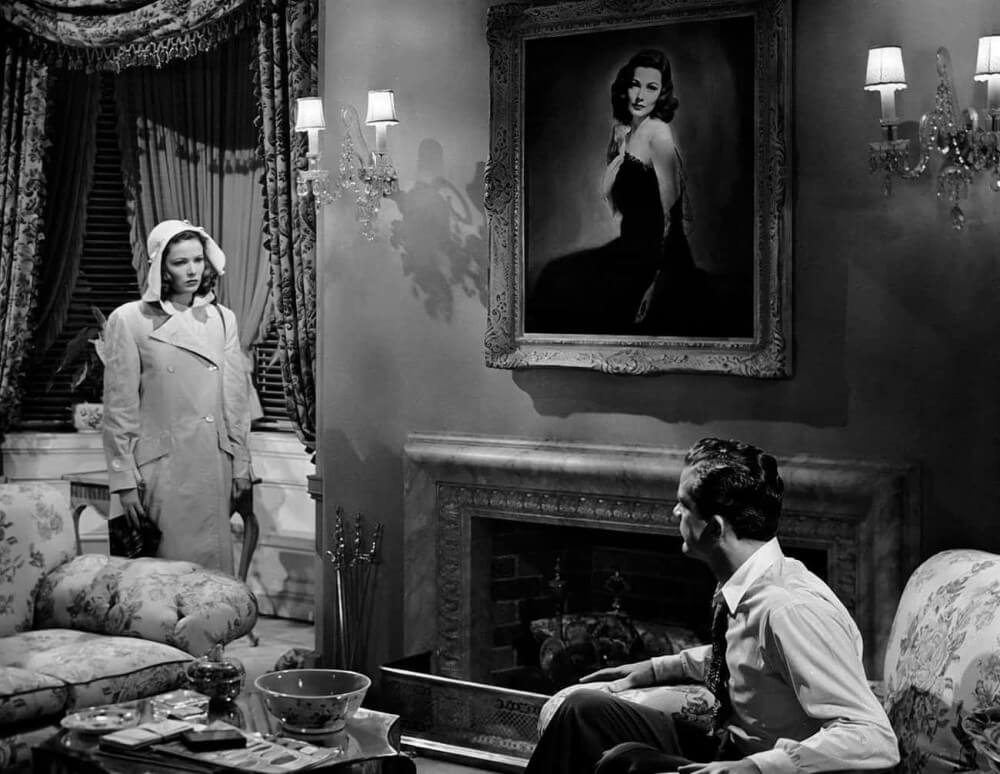 Source: 20th Century Fox
Source: 20th Century Fox
The course of the investigation changes immediately, along with the tone of the story. Mark determines the body actually belonged to one of the models Laura used for her ads. He initially arrests her for the crime but comes to believe she's innocent and Waldo is actually the killer. The remainder of Laura finds the detective attempting to collect enough evidence to charge him, as well as to establish the motive. What he finds is that Waldo was secretly in love with Laura, resented the fact that she was with Shelby, and accidentally killed the model one dark night, thinking it was her. The violence was born from his own obsession with this beautiful woman.
#2 Psycho
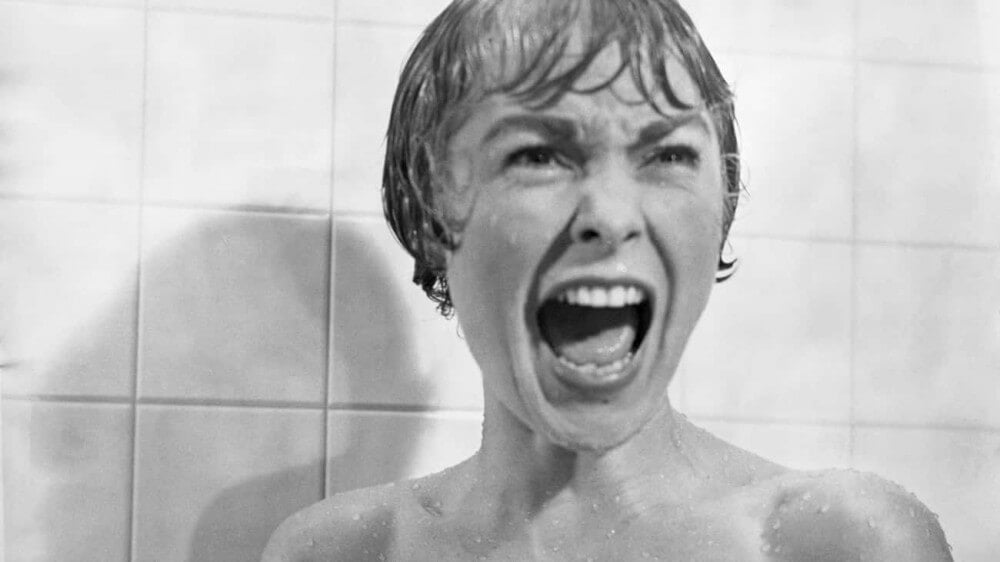 Source: Universal Pictures
Source: Universal Pictures
Psycho's plot twist has gone down as the most significant and surprising in film history. That's because Hitchcock completely subverts expectations. He makes the audience believe the movie is about Marion Crane. Once she's killed off, the viewer doesn't know what to expect. The plot shifts to reveal that it's really about Norman and the psychosis that has led him to become violently demented. Marion's boyfriend Sam and her sister Lila come looking for her when she disappears, and a cop begins poking around. All of this leads to the revelation that Norman has adopted a second personality - that of his deceased mother, whose corpse sits in a rocking chair in his attic.
Killing the presumptive protagonist during the first half of a movie had never been done before, and it rocked audiences to the core. Wes Craven co-opted the idea in 1996 when he killed off Drew Barrymore in the opening scene of Scream.
#3 The Skin I Live In
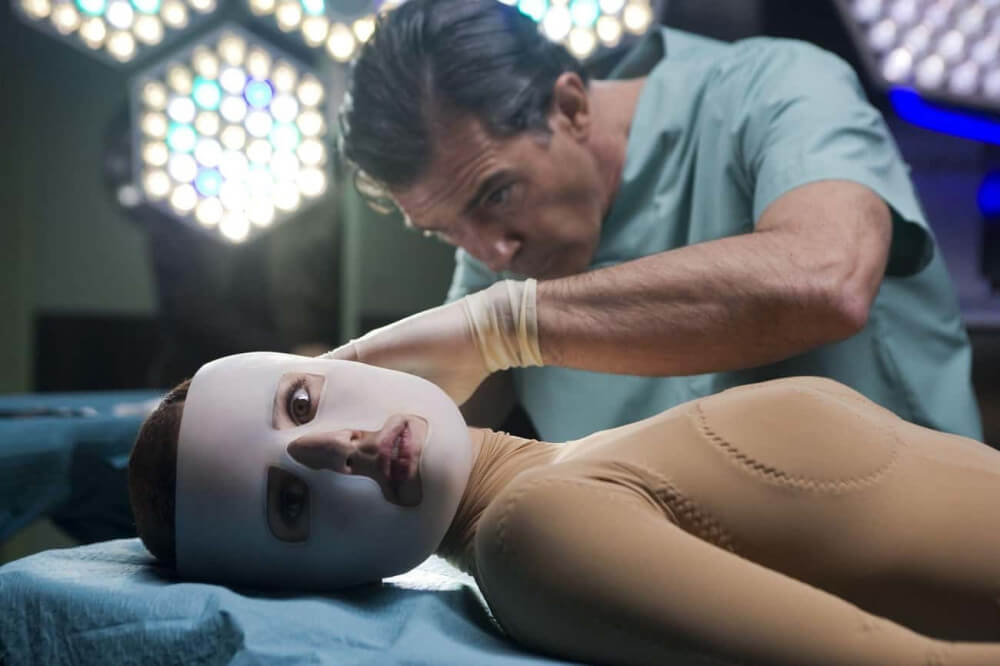 Source: Sony Pictures Classics
Source: Sony Pictures Classics
Partway through the movie, it's revealed that Marilia is, unbeknownst to Robert, his biological mother. That's not the big twist, though. The real shocker is that Vera is really Vicente, a young man Robert mistakenly believes once violated his daughter, ultimately driving her to take her own life. After that incident, he kidnapped Vicente, using his medical skills to forcibly put him through gender reassignment surgery. He's now a woman. Not just any woman, though. Robert has made him a virtual dead ringer for Gal. It's a delicate plot point, but yes, he expects all the things that come with marriage from his new “wife.” The twist here alters our perception of Dr. Ledgard. He is not the benevolent healer we initially believed him to be. He is instead a demented genius, using his talents for revenge and other sick purposes.
#4 The World's End
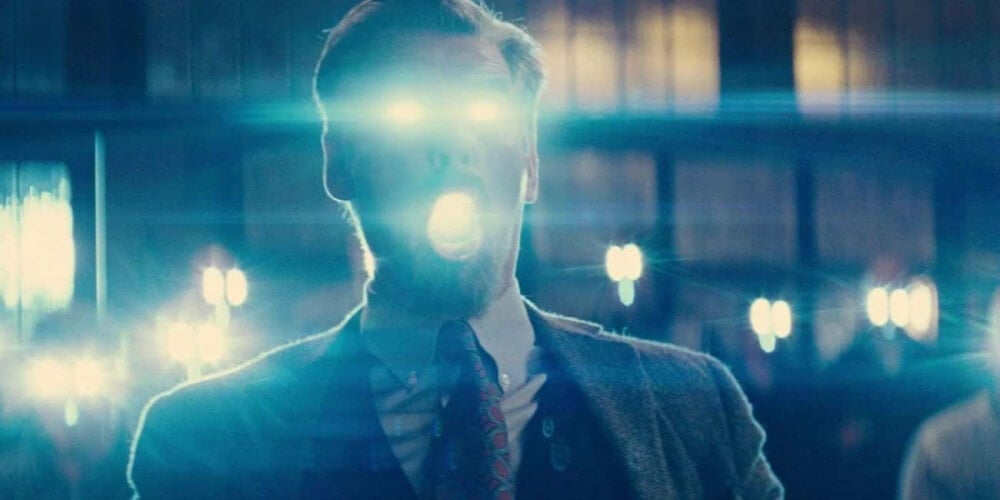 Source: Focus Features
Source: Focus Features
The movie seems like it's going to be a story of friendship and how events from the past impact us in the present. Then one of the men gets into a fight in a bar bathroom. He punches a teenager, and the kid's head pops off, revealing him to be a robot. It's soon evident that just about everyone in town is a robot, all made to look like the local citizenry. Part of the hilarity in The World's End is that it abruptly becomes a tale about humans fighting robots, but Gary nevertheless remains intent on finishing the crawl, even though everyone's lives are in grave danger. The movie ties those things together, showing how facing down an android army spurs Gary to finally get his act together.
#5 Parasite
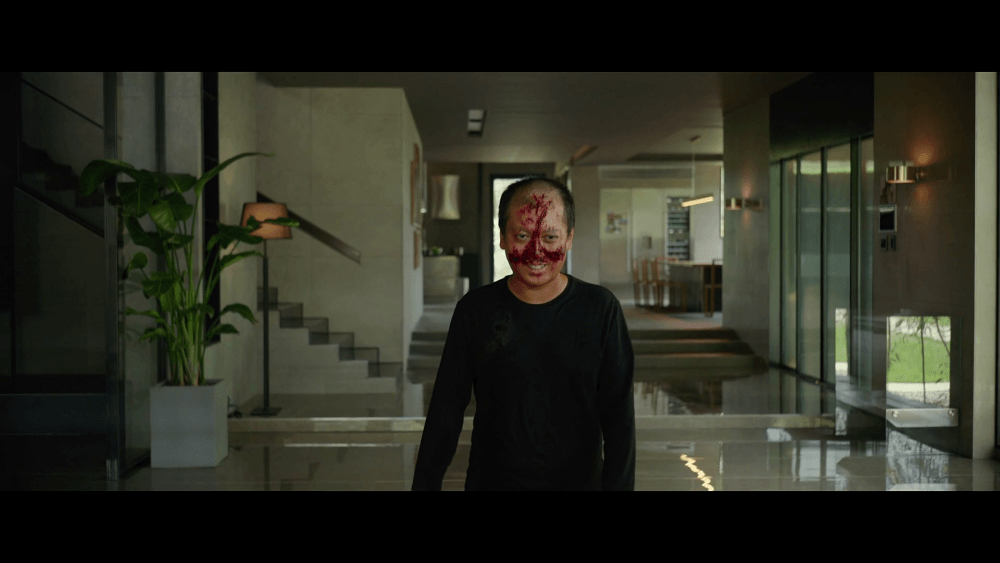 Source: NEON
Source: NEON
This sets off a war that consumes all three families. The Kims want to hold on to their cushy gig. The housekeeper and her husband want to keep their hiding place. And the rich family obviously doesn't want anyone leeching off them. With everyone growing increasingly desperate, violence breaks out, culminating with a birthday party in the backyard that turns bloody. Parasite uses its twist to comment on the economic disparity in the world, as well as the way poverty can occasionally drive people to do things they wouldn't normally do, simply in order to survive.
#6 The Crying Game
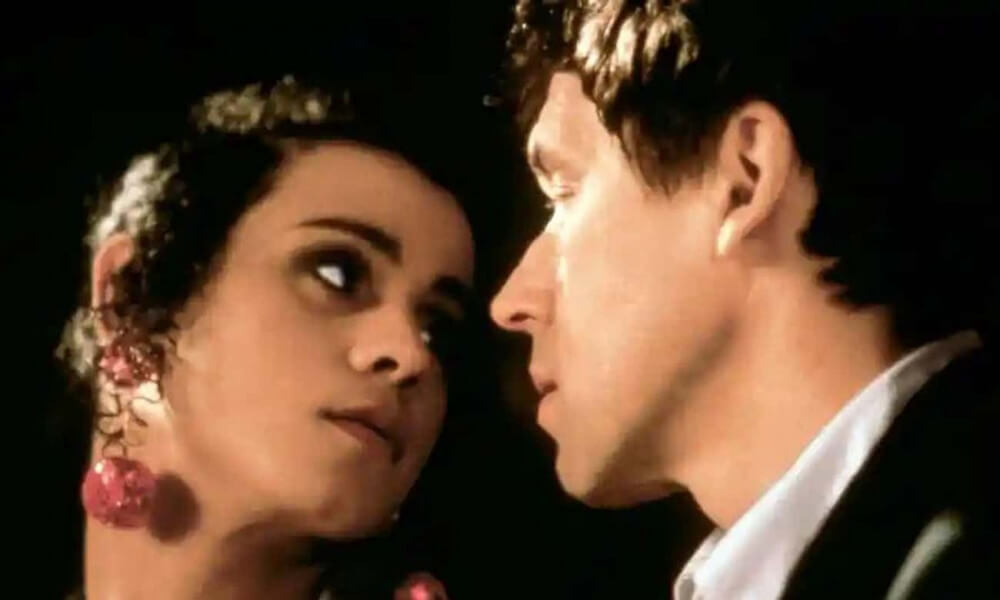 Source: Miramax Films
Source: Miramax Films
The Crying Game was marketed on the fact that it had a big “secret,” and ads implored people not to reveal it to their friends after seeing the film. What happens following the twist is perhaps more surprising, though. The movie was uncommonly progressive for 1992. Although initially upset to learn that Dil is transgender, Fergus's feelings are so intense that he continues to love her after having some time to digest the situation. Both are caught up in dangerous dealings involving the IRA higher-ups, and Fergus protects Dil from harm. The story ends with Fergus in prison, where Dil comes to visit him. It's clear the feelings between them are still in full effect. The film's message is that love is love, and if you have genuine feelings of love for someone, that's a positive thing.
#7 From Dusk Till Dawn
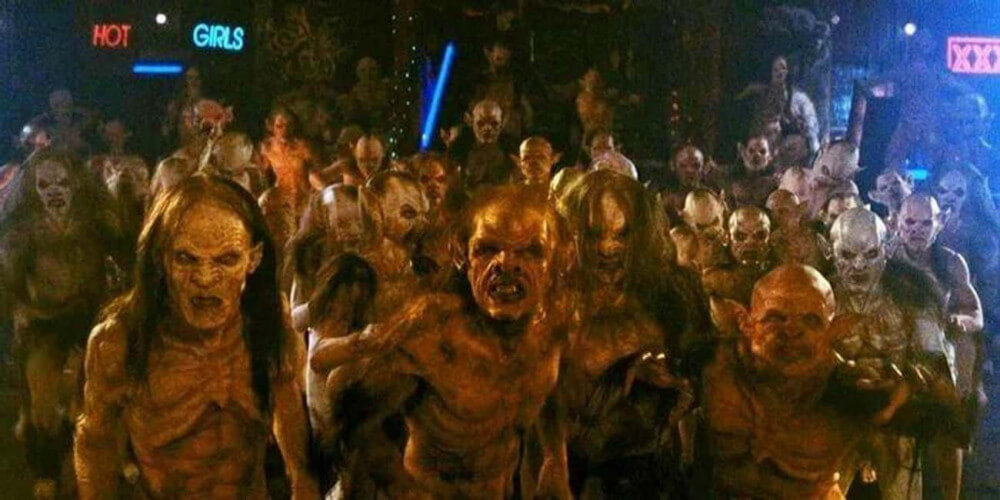 Source: Dimension Films
Source: Dimension Films
This is the point where From Dusk Till Dawn goes from a crime thriller to a horror movie. Seth and Richie are suddenly in a fight for their lives. They need to kill all the vampires if they want to get out of that bar. All sorts of bloody mayhem occur, with the preacher and his daughter caught in the crossfire. Shifting genres midway through a movie is a gutsy move. In this case, doing so helps to make the audience feel the same shock the characters feel.
#8 The Third Man
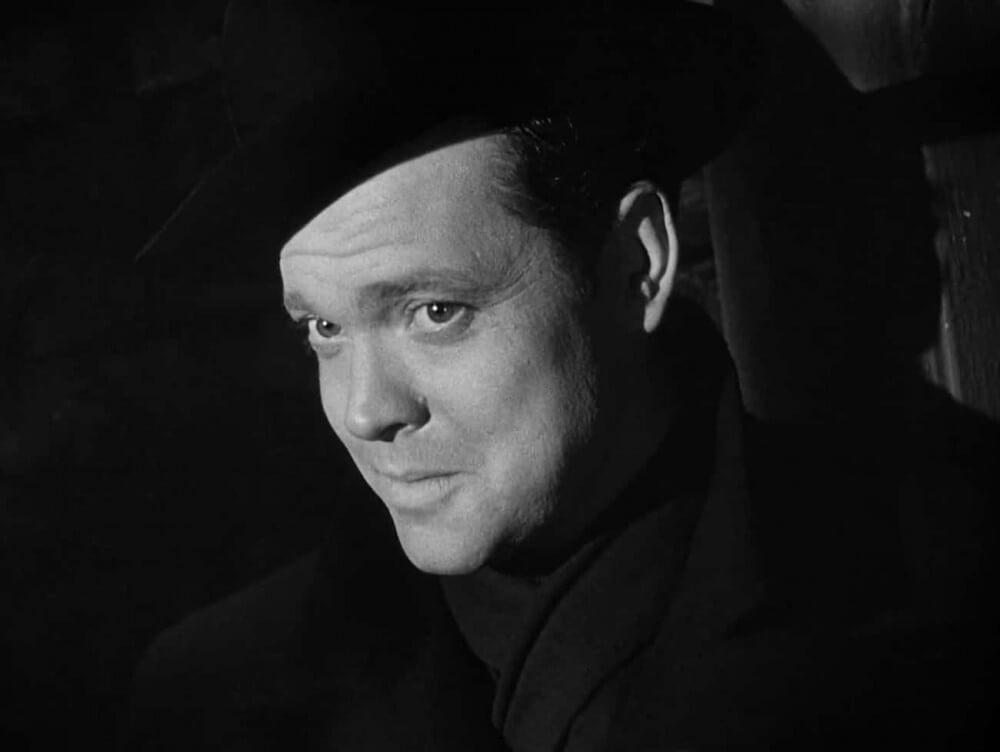 Source: Selznick Releasing Organization
Source: Selznick Releasing Organization
The Third Man then follows what happens as Harry attempts to recruit Holly into his illicit dealings, which the faked demise was designed to obscure. The two have a lengthy private conversation on a Ferris wheel, where Holly rejects the offer. Harry threatens him and then runs off, leading to an intense chase through the sewers after Holly informs the police that the supposedly deceased man is still out there. In the end, law enforcement catches up with Harry, fatally gunning him down. The power in this twist comes from how it marks a turning of the tables. Inviting his friend to Vienna - and then revealing the artificial nature of his demise - ends up being the beginning of the normally in-control Harry's downfall.
#9 Miracle Mile
 Source: Hemdale Film Corporation
Source: Hemdale Film Corporation
Turns out that's the least of his problems. When the pay phone outside the shop rings, Harry answers. A panicked voice tells him nuclear missiles have been launched and will hit LA in about 70 minutes. Harry doesn't know whether this is true, the rambling of a crazy person, or someone pulling a prank. Taking the “better safe than sorry” approach, he races through the city, trying to locate Julie so he can spend his final moments with her if indeed Los Angeles is about to be obliterated. In a wicked bit of irony, Harry starts asking people if they know about the pending apocalypse, leading them to panic, too. Some of the chaos that erupts in the city might actually be his fault.
Miracle Mile stays with the idea of Harry trying to find Julie, but it uses that as part of a larger context, namely the exploration of what a person might do if they knew doomsday was imminent.
#10 Spider-Man: Far From Home
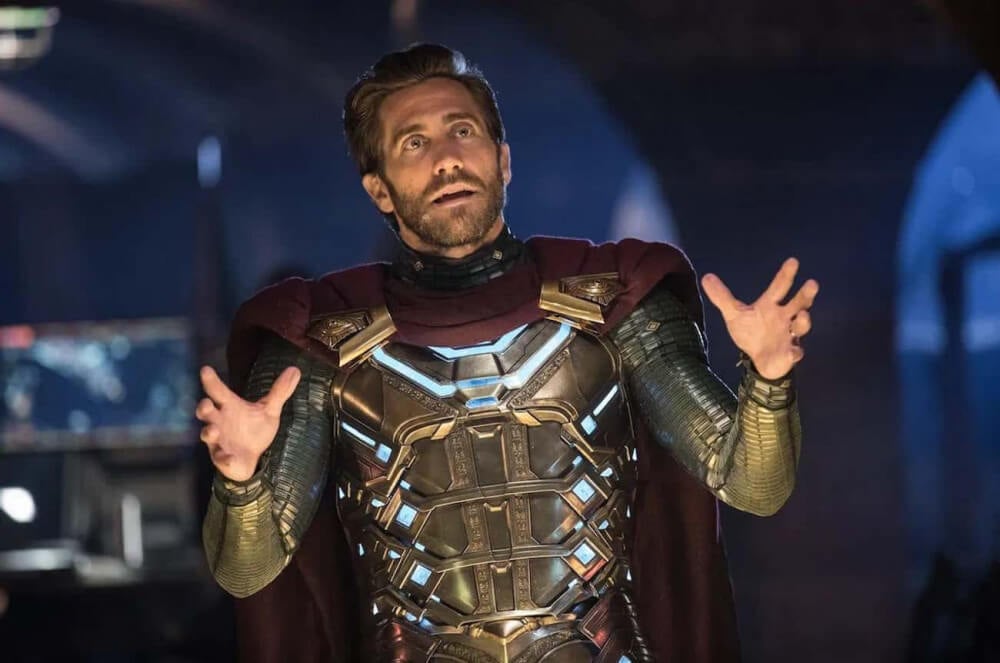 Source: Columbia Pictures
Source: Columbia Pictures
Peter later discovers a small projector and realizes that hologram expert Quentin has been deceiving him. He's fabricated the attacks in order to gain Peter's trust and get his filthy paws on E.D.I.T.H. It's all part of a grand scheme to make himself look like a major hero, worthy of being brought into the Avengers fold. Peter now has to fight someone he came to trust. It's a betrayal of epic proportions. Far From Home ends with Mysterio dying in battle with Spider-Man, but not before he frames Spidey for his demise.
#11 Iron Man 3
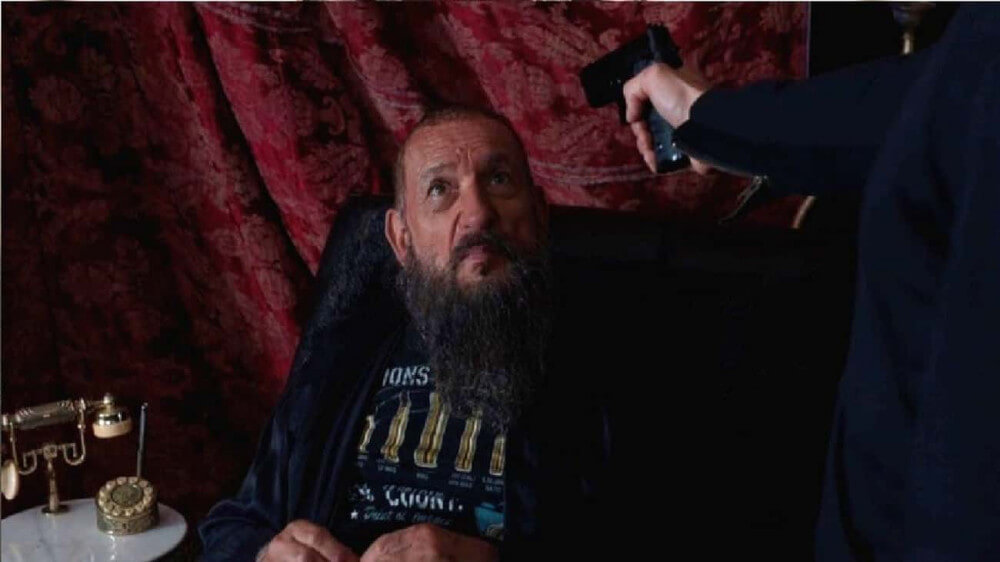 Source: Walt Disney Studios Motion Pictures
Source: Walt Disney Studios Motion Pictures
With this revelation, Stark and the audience are both surprised to realize the true Mandarin is Aldrich Killian (Guy Pearce), a seemingly benevolent scientist and owner of the organization known as Advanced Idea Mechanics. He's hired the actor to deflect attention away from the devious acts he's been plotting. Stark has to reverse course, tracking Killian and beginning the process of attempting to bring him to justice. In terms of story, drama arises from the fact that Killian has, essentially, gotten Stark to waste his time on a wild goose chase, thereby giving him a massive head start on the nefarious scheme, part of which entails assassinating the president of the United States. The great Iron Man has been outsmarted.
#12 The Power of the Dog
 Source: Netflix
Source: Netflix
Halfway through the movie, Peter discovers a stash of magazines belonging to Phil. They contain pictures of nude men. Phil also lovingly caresses a scarf that belonged to his deceased mentor and lover, Bronco Henry. The revelation that Phil is gay alters the entire scope of the movie. It's understandable why he's so hostile - he has to hide his true feelings under the guise of extreme masculinity. He's afraid of rejection if people knew the truth, so he hurts them before they can hurt him. Once Peter finds out, Phil softens toward him somewhat. Peter, on the other hand, does the exact opposite. Despite finding some common ground, he resents it when Phil lashes out at Rose, and plots a fatal revenge.
#13 funny People
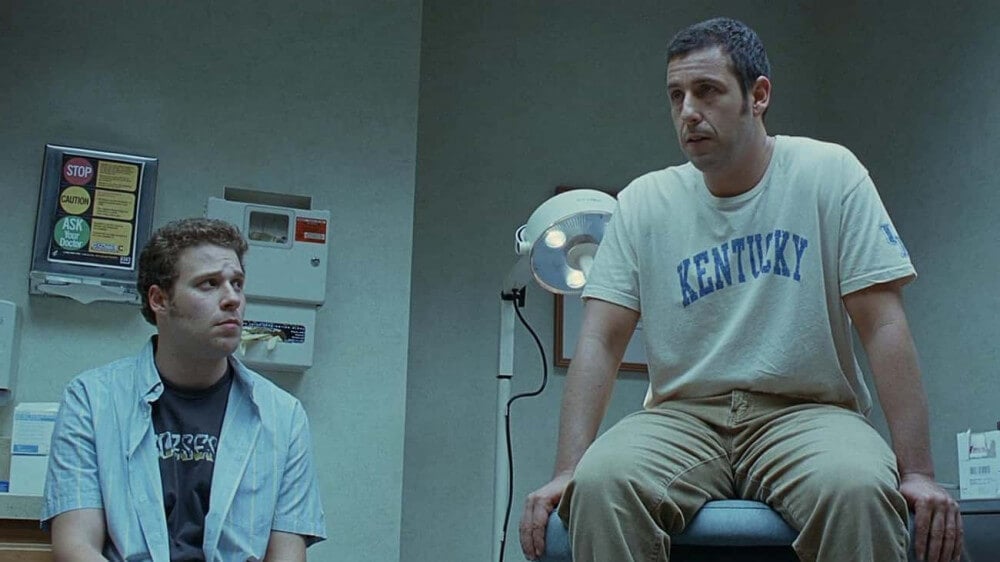 Source: Universal Pictures
Source: Universal Pictures
Most films would have George continuing his self-improvement efforts. Not Funny People. The character goes back to his old ways, alienating his star protégé (Seth Rogen) and trying to convince Laura to leave her husband. Writer/director Judd Apatow clearly didn't want to go the predictable route with his story. Instead, Funny People is a searing look at the personality disorders A-list stars often have. George may show a tiny glint of lasting change at the end, but he may be too messed up of a person to ever change for real.
Share this article
Advertisement